Daniel Zovatto: The temptation in Argentina’s elections is to jump into a void

Manuel Fuentes
Buenos Aires, Oct 21 (EFE).- Argentines go to the polls on Sunday to elect the next president of the republic amid a dramatic economic and social backdrop characterized by highly emotional political behavior, which electoral expert Daniel Zovatto metaphorically defines as “standing on the edge of the abyss, jumping into the void and seeing what happens.”
“Argentine society is going into this election with a highly charged emotional situation, very desperate, very frustrated, with a lot of fear and anxiety,” warns Zovatto (Santa Fe, Argentina, 1957), Regional Director for Latin America and the Caribbean of the International Institute for Democracy and Electoral Assistance (IDEA), Ph.D. in International Law from the Complutense University of Madrid, and one of the most perceptive analysts of Latin American actuality.
“The word that defines this process is uncertainty, but there is an additional element: the extremely emotional and not very rational character of this election, which introduces a component of unpredictability in the results”, added in an interview with EFE the analyst, who is in Buenos Aires to closely follow Sunday’s electoral process.
The most important election in forty years
According to Zovatto, “this is the most complicated, but also the most important election since Argentina’s return to democracy” in 1983.
“The country’s situation is dramatic: last year, Argentina’s GDP per capita was similar to that of 1974. The nation has been at a standstill for fifty years, from 1950 to 2016 there have been nine defaults and fourteen economic recessions, and poverty has skyrocketed.”
“It is obscene that a country like Argentina – one of the largest economies in Latin America, with a gross domestic product (GDP) of about $610,000 billion, according to the World Bank – has more than forty percent poverty,” he says. “The society is very exhausted, frustrated and desperate because of the lack of results.”
“We are going into an election in which 72% of citizens say they are not satisfied with the way democracy is working, and in which there are 50% who would not mind having a non-democratic government as long as it solves their problems,” comments Zovatto, alluding to a recent survey conducted by the Austral University of Buenos Aires, the Poliarquía polling company, and the Buenos Aires City Bar Association.
“We have a terrible economic situation, a brutal social deficit,” says Zovatto. For this reason, “half of the Argentines are looking for someone to come and solve their problems. If he’s a democrat, that’s great, and if he’s not, that’s great, too,” he adds.
The end of the Kirchnerism-Macarist duality
Between 1983 and 2000, Argentine society relied on the binary logic of two major political forces, Peronism and Radicalism, “but that exploded with the 2001 crisis, with the ‘Let them all go,'” recalls Zovatto, who notes that “out of those ashes emerged Kirchnerism and Macrism,” referring to former presidents Néstor Kirchner (2003-2007), his wife Cristina Fernández (2007-2015) and Mauricio Macri (2015-2019), “which lasted another twenty years.”
“With the collapse of the traditional political party system, the door is opened for anti-caste and populist candidates like Javier Milei. He is the consequence of failure,” the analyst declares, referring to the ultra-right and libertarian presidential candidate who is the favorite in the polls.
Milei won the PASO (Open, Simultaneous and Compulsory Primary Elections, held on Aug. 13) and is very strong in the polls.
According to the analyst, it is “highly unlikely” that the most radical sectors of Kirchnerism will take to the streets to overthrow the government if Milei wins, “unless the results of the elections are challenged.”
“Until now, Argentina has had a very important characteristic that distinguishes it from other countries in the Americas, and that is that the political power has never interfered with the electoral authority; there has always been a relationship of respect and acceptance,” he stresses.
But Zovatto is convinced that the next president of Argentina will face a “brutal challenge of governability”. EFE
mf/ics
When Will Argentina Announce Presidential
Election Outcome?
ByJuan Martinez
October 21, 2023
This Sunday marks a pivotal moment for Argentina as voters head to the polls to elect their next president.
The leading contenders are Javier Milei, Patricia Bullrich, and Sergio Massa. Each candidate presents a unique approach to tackling Argentina’s daunting challenges.
Milei, a 52-year-old economist, offers bold solutions such as adopting the U.S. dollar and reducing government size.
His ideas resonate with those frustrated by economic stagnation and rising inflation.
Bullrich, a conservative leader, promises robust law enforcement. She aims to set herself apart from past ineffective administrations.
Massa, the current Economy Minister, seeks to detach his image from the widespread inflation happening under his watch.
He wants to be seen as a stable alternative amid the ongoing turmoil.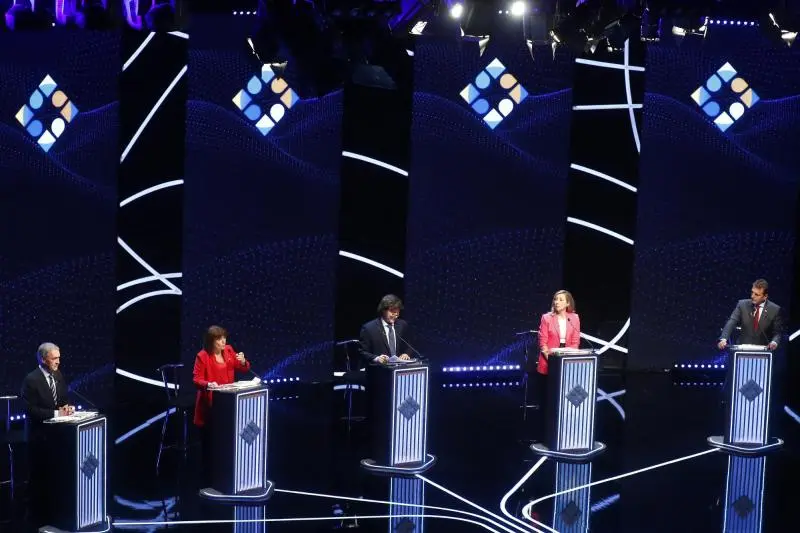 When Will Argentina Announce Presidential Election Outcome?. (Photo Internet reproduction)
When Will Argentina Announce Presidential Election Outcome?. (Photo Internet reproduction)
Juan Negri, a political analyst, notes that the public mood is tense. Many people are looking for change due to persistent economic troubles and social unrest.
Polls suggest Milei could lead the vote count, but it’s unclear whether he’ll secure an outright win or head into a runoff.
Initial results are expected on Sunday after 9 p.m., heightening public anticipation.
The nation grapples with issues like a stagnant economy, high poverty levels, and a complex debt situation.
Over 40% of the population lives in poverty, and the country owes significant sums to the International Monetary Fund (IMF).
Recent currency market instability adds more stress. The informal dollar rate, known locally as ‘dólar blue,’ has surged, escalating public concerns.
Paola Zubán, a consultancy director, observes that the negativity in the campaigns makes choosing a candidate even more complicated.
Negativity in the Campaigns
Nelly Quintana, a shop owner, echoes this sentiment, stating that the decision this year is harder than ever.
Additionally, voters will fill legislative seats, and no party is expected to gain a majority.
The newly elected president, serving a four-year term starting December 10, will inherit not just a struggling economy but also a divided legislative landscape.
The election comes as Argentina celebrates 40 years of democracy. With more than 35 million people eligible to vote, the outcome will undoubtedly shape the nation’s future.
As the clock ticks down to Election Day, the stakes couldn’t be higher. The new leader must govern effectively and unite a country facing numerous challenges.
Javier Milei: Disrupting Argentina’s Economic
Norms
By Juan Martinez
October 21, 2023
Javier Milei, a fresh face in Argentine politics, garners attention with his ideas, which some describe as radical.
Unlike former U.S. President Donald Trump and Brazil’s Jair Bolsonaro, Milei focuses primarily on economic reforms.
His main proposal is to abolish Argentina’s peso. Moreover, he wants to dismantle the nation’s Central Bank.
Milei believes this institution allows politicians to cheat the public. He suggests that Argentines should use any currency for their transactions.
He predicts the U.S. dollar will naturally become popular.
Many economists and business leaders question Milei’s views. They point out that Argentina does not have enough dollar reserves to make this switch.
Milei argues that people can use the dollars they have stored at home to solve this problem.
If Argentina adopts Milei’s proposals, it will make history. It would become the first large country to operate without a central bank.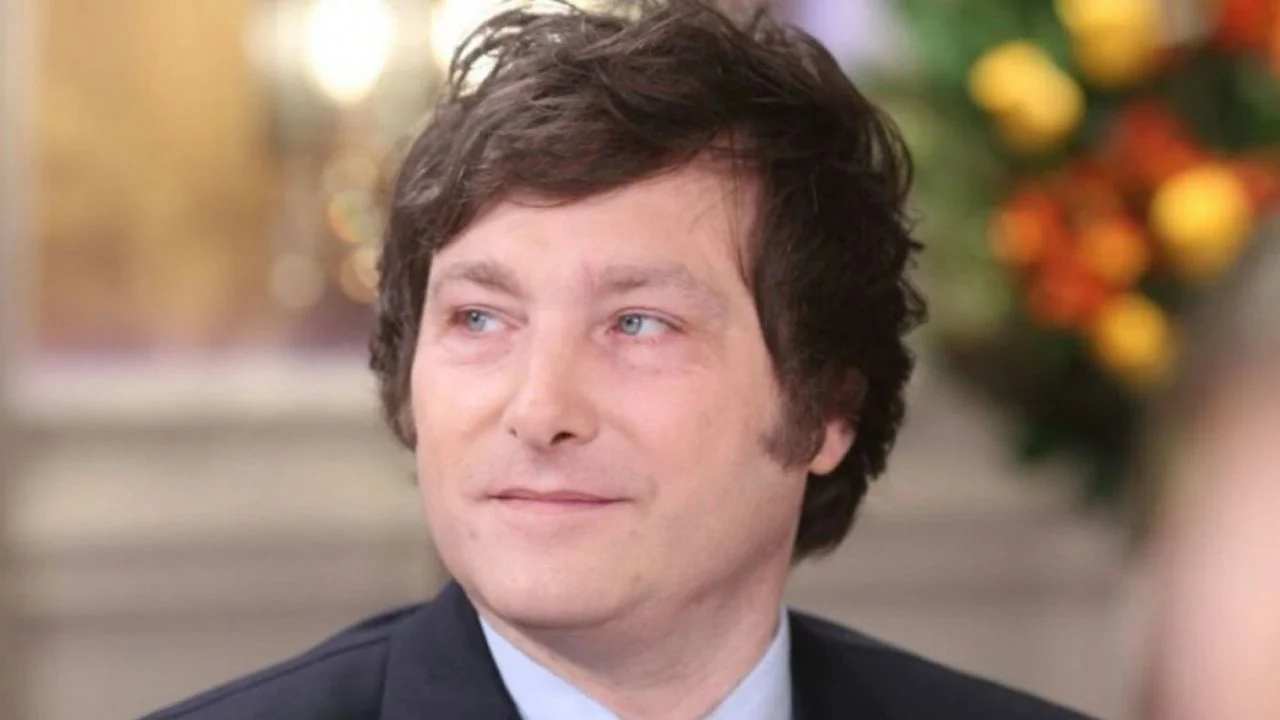 Javier Milei: Disrupting Argentina’s Economic Norms. (Photo Internet reproduction)
Javier Milei: Disrupting Argentina’s Economic Norms. (Photo Internet reproduction)
Most governments keep a central bank for financial oversight. They also use it to manage currency values and handle crises.
Argentina is currently facing an economic crisis. Inflation rates have soared to 138% this year.
The country has had a variety of leaders over the past 20 years, from Peronists to those on the center-right. None have been able to fix the economy.
This situation has made Milei’s anti-establishment views increasingly popular.
Background in Economics
What sets Milei apart is his background in economics. He has taught at universities and authored several books on the subject.
In 2021, he transitioned from the private sector to politics. He won a seat in the federal legislature.
The current election in Argentina is drawing a lot of eyes. Milei’s unconventional approach excites some people.
Yet, it makes others cautious. Critics say that his radical plans could upset existing systems. These systems, despite their flaws, provide some stability.
In conclusion, Milei’s emergence is stirring the political pot in Argentina.
As the nation struggles with ongoing issues like economic instability, Milei represents a new, disruptive force.
The question remains whether he will turn his growing popularity into electoral victory.
In Southern Argentina, a Political Dynasty
Fades as New Power Rises
Reuters
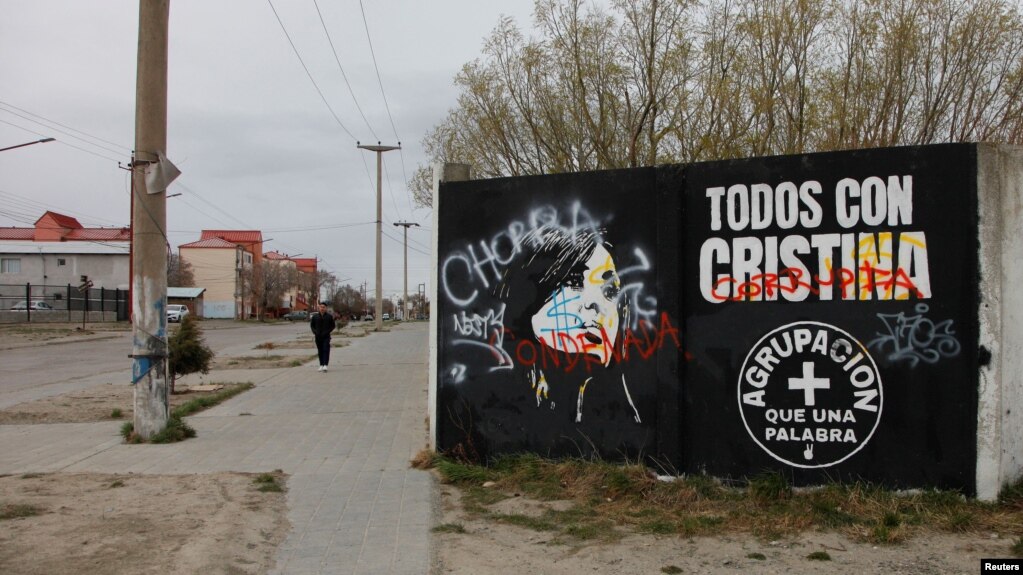
RIO GALLEGOS, ARGENTINA —
Alicia Kirchner, an elder of Argentina's most powerful political dynasty, recalls with fondness helping build homes, schools and the first hospital in Rio Gallegos, a small city in the country's windswept Patagonian south.
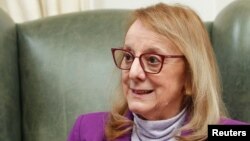
The Kirchner family, which includes two of the last four presidents in Argentina, have ruled with dominance for decades here in the icy southern province of Santa Cruz, a region they call home, where they own land, investments and hotels.
That dynasty — the leftist core of the powerful Peronist movement — is now waning, as a new force has burst onto the scene in the form of far-right outsider Javier Milei.
Milei, who wants to "chainsaw" the political status quo, is the favorite to win a first-round general election Sunday after he scored a shock victory in an open primary vote in August, including taking the biggest vote share in Santa Cruz.
The libertarian economist has ridden a wave of voter anger at inflation set to hit 200% this year and the worst economic crisis in two decades that has left two-fifths of the population in poverty. Many blame the country's recent rulers.
"Milei is a product of discontent," Kirchner, 77, the outgoing governor of Santa Cruz, told Reuters at her official residence, not far from the mausoleum of her late brother and former President Nestor Kirchner (2003-2007).
Her sister-in-law Cristina Fernandez de Kirchner, president from 2007 to 2015, was — until recently — the undisputed star of Argentine politics. Fernandez de Kirchner handpicked the current President Alberto Fernandez in 2019 and remains his vice president.
But political winds are changing. Fernandez de Kirchner, 70, a divisive figure who has clashed with investors but is an icon of the Latin American left, is stepping out of the limelight and not running for office for the first time in decades.
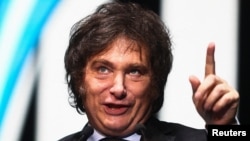
In Santa Cruz, Milei won 29% of the vote in the primary, well ahead of the ruling Peronist coalition and conservative candidate Patricia Bullrich. The Peronists themselves have seen an internal powerful shift away from the Kirchners, with the ruling party now backing centrist Economy Minister Sergio Massa.
We're all poor here
Santa Cruz is a microcosm of the massive political upheaval underway in the country, that threatens to roil markets, impact Argentina's ties with trade partners like China and Brazil and undo progressive shifts on women's rights and abortion.
Argentina is one of the world's top soy and corn exporters, the biggest debtor to the International Monetary Fund (IMF) with a $44 billion program — and has been luring investment to its huge resources of shale gas and battery metal lithium.
But years of economic malaise, debt and currency crises have hurt local economies like that of Santa Cruz, where poverty has more than doubled since 2018 to some 40%, the state employs over half the workforce, but salaries fall well behind inflation.
"We're all poor here," said 23-year-old Brian Franco, a part-time chauffeur in tourist town El Calafate, who works shuttling visitors to the famous Perito Moreno glacier when he is not repairing washing machines to make ends meet.
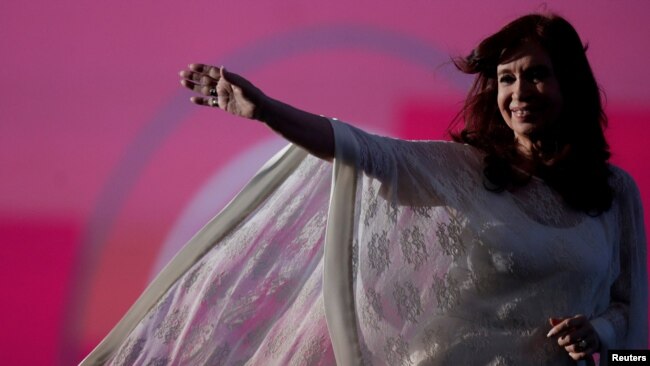
This remote town is also where an alleged graft and money-laundering scheme related to the El Calafate hotels owned by the Kirchner family took place. In a separate corruption case last year Fernandez de Kirchner was sentenced to six years in jail, which barred her from holding future office, though this faces a lengthy appeals process.
In the shadow of the Andes, signs of the Kirchner family can be seen around the resort, their name honored in street signs and the orange color adopted by the campaign of their chosen mayor, who has governed uninterrupted since 2007.
But now purple balloons and yellow flags, the colors of Milei's campaign, adorn some houses in the remote enclave.
"Half of those I know vote Milei," Franco said, amid a group of youngsters gathered outside a barbershop.
I'm voting for change
Around dawn one October morning, Guillermo Carnevale, 58, hunched up against the Patagonian wind and morning chill as he opened his small hardware store.
Carnevale, who lost his job running a local filling station during a long COVID-19 lockdown, set up the shop selling nails, screws and tools that has become a lifeline for his family. He still faces challenges given rising input prices and interest rates at 133%, which block access to credit.
Four years ago, he backed Peronist Fernandez in the election, and in 2015 mainstream conservative Mauricio Macri. But now he is a convert to Milei.
"There was hardly any work ... so people started speaking out against the disastrous economic situation," he said.
Beyond the tough economic impact, the real tipping point came when his son told him he wanted to move to Spain or Germany for a better life.
"So, I told him we'd fix the country."
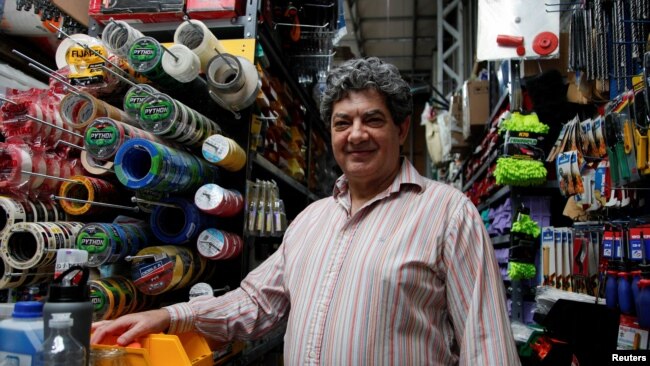
In Santa Cruz, a province of some 333,000 people, fixing things was once the role of the Kirchners.
Under the Kirchners, an airport was built in El Calafate, roads were paved, and plots of land were distributed to locals. In less than 30 years the population swelled from under 7,000 to 30,000 recorded this year.
The development driven by Kirchnerism was vital for Ana Guerrero's family chocolate business, which opened in the 1960s. "An airport brought visitors, investment, big hotels and with that, more customers," Guerrero said.
But since the start of this year, a lack of central bank foreign reserves for imports and capitals controls making trading more complex have hit her supply of cocoa. She goes for weeks without the key ingredient.
Guerrero said, "We've reached the point where I can't make plans."
No comments:
Post a Comment